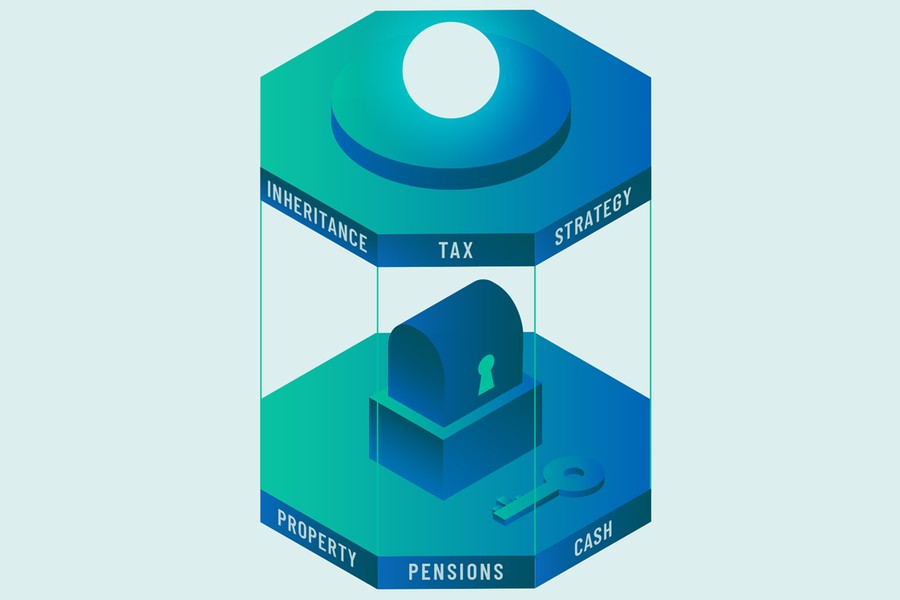As the new Chancellor Rachel Reeves announced the details of her first Budget, she outlined what her objectives were; namely to tackle the £22bn deficit ‘financial black hole’ and fund public infrastructure by raising approximately £40bn in taxes. Time shall tell how achievable these objectives are, but she certainly delivered a tax and spend approach, with the biggest hike in taxes since 1993.
One of the most surprising and notable changes announced in the Autumn Budget was that all defined contribution pension assets will be brought into the inheritance tax regime from 6th April 2027. After weeks of speculation and rumour, the concern ahead of the Budget was that the government would target the 25% tax-free cash lump sum benefit of pensions. The concern was so great that it encouraged some to take their tax-free cash early ahead of the Budget. However, rather than removing the tax-free lump sum benefit, Reeves instead confirmed that pension funds would no longer be considered outside of an individual’s estate and therefore would be included within the inheritance tax calculation on death.
Bringing pensions into an individual’s estate may mean many people will need to adopt a revised approach to both retirement and estate planning.
Based on current inheritance thresholds (which continue to be frozen), on death each person is entitled to a £325,000 nil rate band allowance and a further £175,000 residence nil rate band if a main residence is passed down to a direct descendant. Married couples or civil partners can combine their allowances to make a total inheritance tax allowance of £1m. This may sound like a fairly significant sum, but with total assets, property and now pensions included; it is likely that many more people will have total assets exceeding this sum. When considering inflation and increasing house prices, the fact that nil rate band thresholds have remained frozen since 2009 means that the actual worth of these thresholds reduces year on year, dragging more individuals into the inheritance tax net. Additionally, the inclusion of pensions within the inheritance tax calculation will likely disqualify more households from receiving the residence nil rate band, as this tapers away on estates over £2m.
Bringing pensions into an individual’s estate may mean many people will need to adopt a revised approach to both retirement and estate planning. These will become more intertwined as, subject to a consultation period, the inheritance tax liability will be deducted from the pension before the estate can be finalised. In addition, for those who die aged over 75, the inherited pension fund will not only be subject to inheritance tax but also income tax on the residual amount at the beneficiary’s marginal rate.
It would be sensible for those impacted by the changes to review their retirement strategy before the new rules are implemented in 2027. Prior to the Budget, it was often advised that other assets be drawn on to support retirement, in preference to the pension. This was because the pension, being inheritance tax exempt, could be passed down intact to beneficiaries on death. Other assets that were in the estate were instead accessed to reduce the inheritance tax liability. Now the pension will also be brought into the estate, there could be less incentive to retain the pension fund. Please do remember however that the pension fund will still benefit from valuable tax benefits: like an ISA, the investments are not subject to Income Tax or Capital Gains Tax within the pension fund so grow without any tax constraints until withdrawals are required. Also, there remains tax relief on personal contributions when paying into the pension, and 25% tax-free cash is usually available at retirement so they remain a valuable vehicle to use for future retirement.
Gifting this cash away to your beneficiaries should be considered, rather than leaving it in the pension.
As the new rules will not apply until April 2027, there is plenty of time to consider the changes. The complexity of the implementation may lead to some changes before the effective date and this will be confirmed once the government consultation has concluded. The consultation paper explains the changes and states that inheritance tax will be payable on the value of the gross funds in the pension immediately before death, but before being distributed or designated to the beneficiary.
If you are funding your pension purely for estate planning purposes, then you may wish to reconsider this approach. Likewise, if you have deferred taking tax-free cash beyond age 75, then it could be wise to revise this strategy. If the tax-free cash is not required to support retirement, then gifting this cash away to your beneficiaries to reduce your estate should be considered, rather than leaving it in the pension. It will also be important to review pension expression of wishes, as passing the pension fund now to your spouse may give more opportunities to remove funds from the estate before they pass away.
The JM Finn Wealth Planning team are on hand to discuss any of the areas covered in this article — please speak to your investment manager to be put in touch.
Case study: Mr Smith adopts a more tax-efficient approach
Mr. Smith, a 73-year-old with a Self-Invested Personal Pension (SIPP) and General Investment Account (GEN), had been preserving his SIPP to pass on to beneficiaries while meeting expenditure through withdrawals from his investment portfolio. However, following the announced changes to inheritance tax on pensions in future, he plans to change his strategy to adapt to the new rules. Mr Smith now plans to withdraw the 25% tax-free cash from his SIPP to gift to each of his two children who are in their 40s, enabling them to maximise their ISA allowances and contribute towards school fees. Additionally, he will draw pension income up to the basic rate tax threshold and gift this surplus as part of his ‘normal expenditure out of income’ exempt from IHT. This approach reduces his estate from 2027 and diminishes the taxable pension fund that will otherwise incur income tax for his beneficiaries if he dies after 75, balancing immediate family support with long-term tax efficiency.
The information provided in this article is of a general nature and is not a substitute for specific advice with regard to your own circumstances. You are recommended to obtain specific advice from a qualified professional before you take any action or refrain from action.




